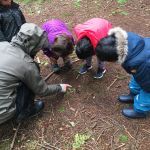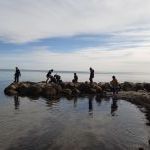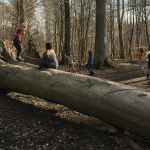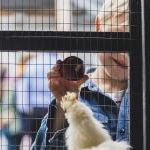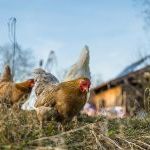Green School - Byensteinerskole
‘The city’s Steiner School’ is located in a green area of Copenhagen and they are focused on a green agenda which includes; a green school environment; school garden with plants, bees and other animals; school kitchen (connected to the school garden) which cook vegetarian food for communal dinner; outdoor teaching and nature-experiences; practical teaching about composting and recycling; and an internship on a biodynamic farm (for year 9 pupils). The school works towards a ‘green flag’ under the ‘Green Schools’ programme which offers education in sustainable development. This is run by the national organisation “Friluftsrådet” (Outdoor Council) where schools can achieve the ‘green flag’, celebrating achievements in relation to nature, environment, and outdoor living.
Website
Useful links
Country
Media
Useful UK Links
Greenfields Community School in Nottingham is an excellent example of a school that runs outdoor education through growing and forst school projects. It is also a Food for Life Gold School.
* TOP TIP *
'Work with the children to plan your green school. What could be done to make your school grounds mmore environmentally friendly?'
How is the project linked to sustainability and climate change?
The school is linked to climate change, sustainability and connection with nature through teaching in classes at all levels. They teach these topics specifically through farming education in their school garden, the farm internship and education on the quality of food while cooking their vegetarian dishes. Furthermore, they focus on having as many green spaces as possible to mitigate the effects of being a city school.
Who is involved?
The whole school is involved with the project (the teachers and pupils in all levels) and it also links to the community.
How are the participants involved?
The school's principle is that education in topics such as science are best taught in nature. The educational approach focuses on senses and education through both heart and mind. Due to this, a typical school day involves going to the school garden, nature experiences, looking after animals at school, classes outside, cooking vegetarian dishes in school, internship at a biodynamic farm (9th grade) and waste recycling. The school has just moved location to a greener spot in the city. This means that a part of the involvement with the local community is a cooperation with “Banegaarden” - a diverse ‘green initiative’ in the same location as the school. The school also takes care of local chicken and bees, and occasionally have projects with “Bugging Denmark”. There are plans for cooperation between the local community and the school garden in when the school is more established at the new location (the 'Green School label' that the school subscribes to has a focus in the involvement with the surrounding community).
Key steps:
The City’s Steiner School of Copenhagen has implemented many actions which can serve as inspiration to schools elsewhere. An example is their school garden and cooperation with a biodynamic farm:
1: The City’s Steiner school uses the school garden in class to teach younger pupils about growing vegetables and other plants, while the older pupils are taught both practical and theoretical aspects of plants/animals/growing/cooking/nature/ history/farming.
2: The school garden is closely connected with the schools' kitchen. Amongst others, the pupils use the vegetables grown in the garden in cooking class, giving the pupils an understanding of how food is grown and prepared.
3: The school has established collaboration with a farm with emphasis on sustainability (i.e. biodynamic or regenerative) where the oldest pupils can do internships or visits. This specific action-example is a possibility for the pupils to get involved with the sustainable development connected with farming that exist outside the school.

